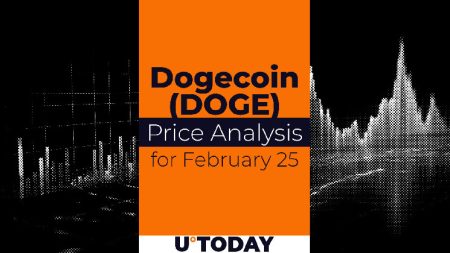Argentine Lawyers File Charges Against President Javier Milei Over Libra Token Controversy
In a dramatic turn of events, lawyers in Argentina have taken legal action against the country’s President, Javier Milei, in connection with the recent collapse of the Libra token. The situation has sparked widespread controversy, with plaintiffs accusing Milei of fraud following a so-called "rug pull" incident. The term "rug pull" refers to a cryptocurrency scam where developers abandon a project and abscond with investors’ funds, often after artificially inflating the value of a token.
According to reports from the Associated Press (AP), the legal action stems from Milei’s alleged involvement in promoting the Libra token before its value plummeted. The plaintiffs claim that Milei’s withdrawal of support for the token led to its sudden depreciation, effectively defrauding investors who had placed their trust—and money—into the project. This has raised questions about the president’s role in endorsing cryptocurrencies and the potential risks associated with such endorsements.
President Milei Denies Knowledge of Token Details, Says Promotion Was Routine
In response to the allegations, the President’s Office hasissued a statement distancing Milei from any direct involvement in the Libra token project. According to the statement, Milei had simply shared a post on his personal social media accounts announcing the launch of the KIP Protocol’s project, as he often does for various entrepreneurs and startups based in Argentina. The statement emphasized that the president’s intention was to support job creation and attract investments to the country.
The President’s Office also revealed that representatives from the Libra token project had met with Milei at his office, which is not unusual given his administration’s focus on fostering innovation and economic growth. However, the office clarified that Milei was unaware of the specific details behind the token and had no knowledge of the project’s inner workings. This defense suggests that the president’s endorsement was based on incomplete information and that he had no intention of misleading investors.
Legal Proceedings Underway: Prosecutors to Review the Case
As the legal battle unfolds, prosecutors in Argentina have announced that they will meet on Monday to determine whether the case against Milei is worth pursuing. At present, Milei has not been formally charged with any crime, and it remains to be seen whether the allegations will hold up in court. The outcome of this meeting will be crucial in determining the direction of the case and whether the president will face formal charges.
The case has already generated significant public interest, given the high-profile nature of the individuals involved and the growing interest in cryptocurrencies in Argentina. The country has seen a surge in crypto adoption in recent years, driven in part by economic instability and inflationary pressures. However, the Libra token incident has brought attention to the risks and regulatory challenges associated with the cryptocurrency market.
On-Chain Researchers Uncover Potential Connection to Another Token
Adding another layer to the story, on-chain researchers have made an intriguing discovery about the individuals behind the Libra token. By analyzing wallet transactions and other blockchain data, these researchers have identified similarities between the Libra token team and those associated with another cryptocurrency project called Melania. The connections between the two tokens are still being investigated, but the findings suggest that the same group may have been involved in both projects.
This revelation raises further questions about the integrity of the Libra token project and whether it was always intended to be a legitimate venture. If proven, the connection to the Melania token could provide additional evidence for the fraud allegations against Milei, as it would suggest that the project was part of a larger scheme to deceive investors. Meanwhile, the research underscores the importance of due diligence in the cryptocurrency space and the need for greater transparency from project developers.
Broader Implications for Cryptocurrency Regulation and Presidential Accountability
The controversy surrounding President Milei and the Libra token highlights the broader challenges of regulating cryptocurrencies and the potential risks of political figures endorsing such projects. While cryptocurrencies offer exciting opportunities for financial innovation, they also carry significant risks for investors, particularly in cases where projects are poorly regulated or outright fraudulent.
The case also raises important questions about the accountability of public figures when they endorse or promote private projects. As a head of state, Milei’s endorsement of the Libra token carries a certain level of authority and credibility, which may have influenced investors to place their trust in the project. The legal action against him serves as a reminder that public figures must be cautious about the projects they support and the information they share with the public.
Conclusion: A Call for Greater Transparency and Investor Awareness
The Libra token controversy serves as a stark reminder of the Wild West nature of the cryptocurrency market, where opportunities for innovation and investment often coexist with risks of fraud and exploitation. While the legal case against President Milei is still unfolding, it has already sparked important discussions about the role of political leaders in the crypto space and the need for greater transparency in cryptocurrency projects.
For investors, this incident is a cautionary tale about the importance of conducting thorough research before putting money into any project, especially in the largely unregulated world of cryptocurrencies. As the situation continues to develop, it will be important to monitor not only the legal proceedings but also the broader implications for cryptocurrency regulation and presidential accountability in Argentina.















